Who Are Innovation Partners?
Innovation Partners are a select group of partners that will not only continue to run in-depth LitWorld programming, but will also collaborate with LitWorld to test new ideas and programs (called "Innovation Projects") designed to solve the unique needs of their communities.
Through these Innovation Projects, we can work together with our partners to discover the most effective ways of creating lasting, sustainable change—and then bring those discoveries to communities everywhere!
Ongoing Innovation Projects
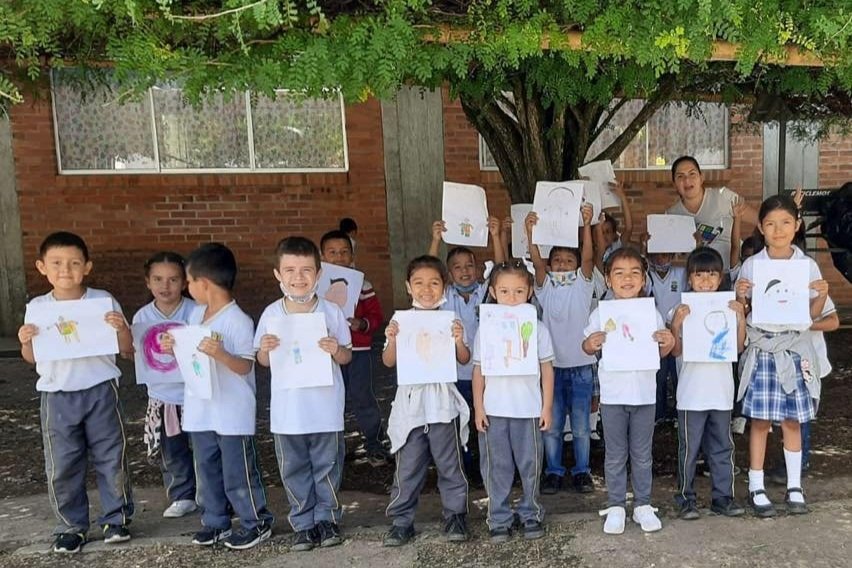
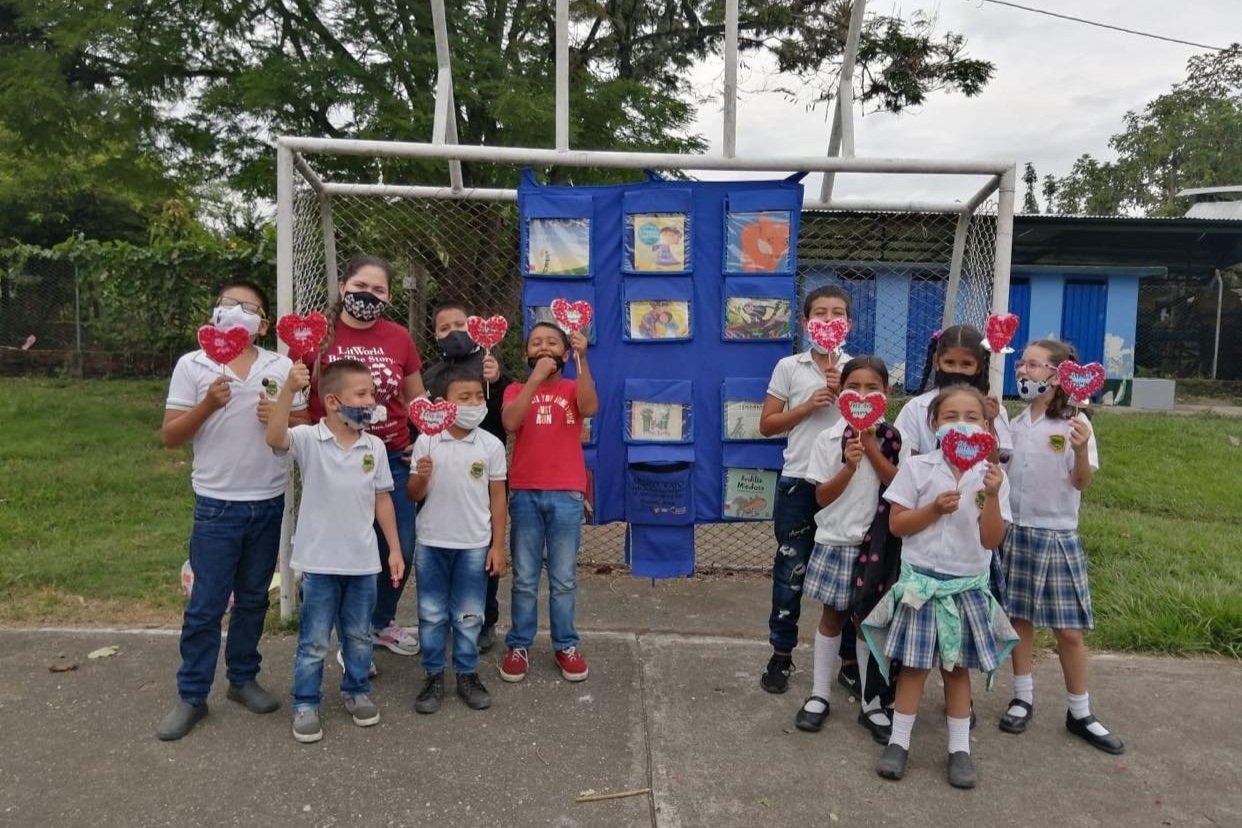
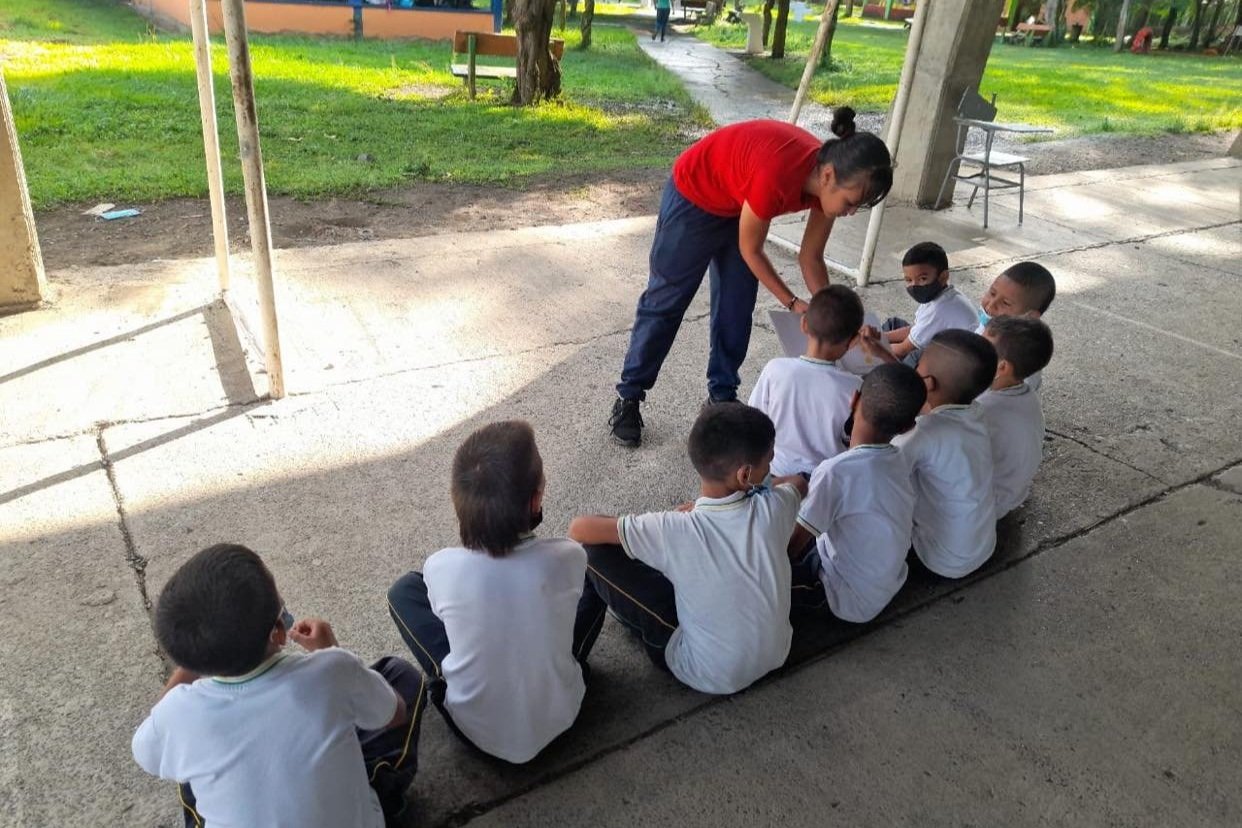
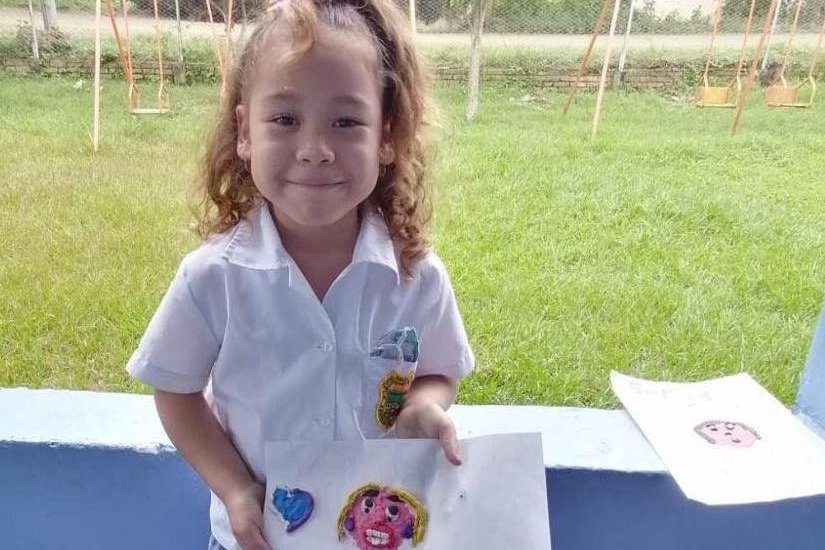
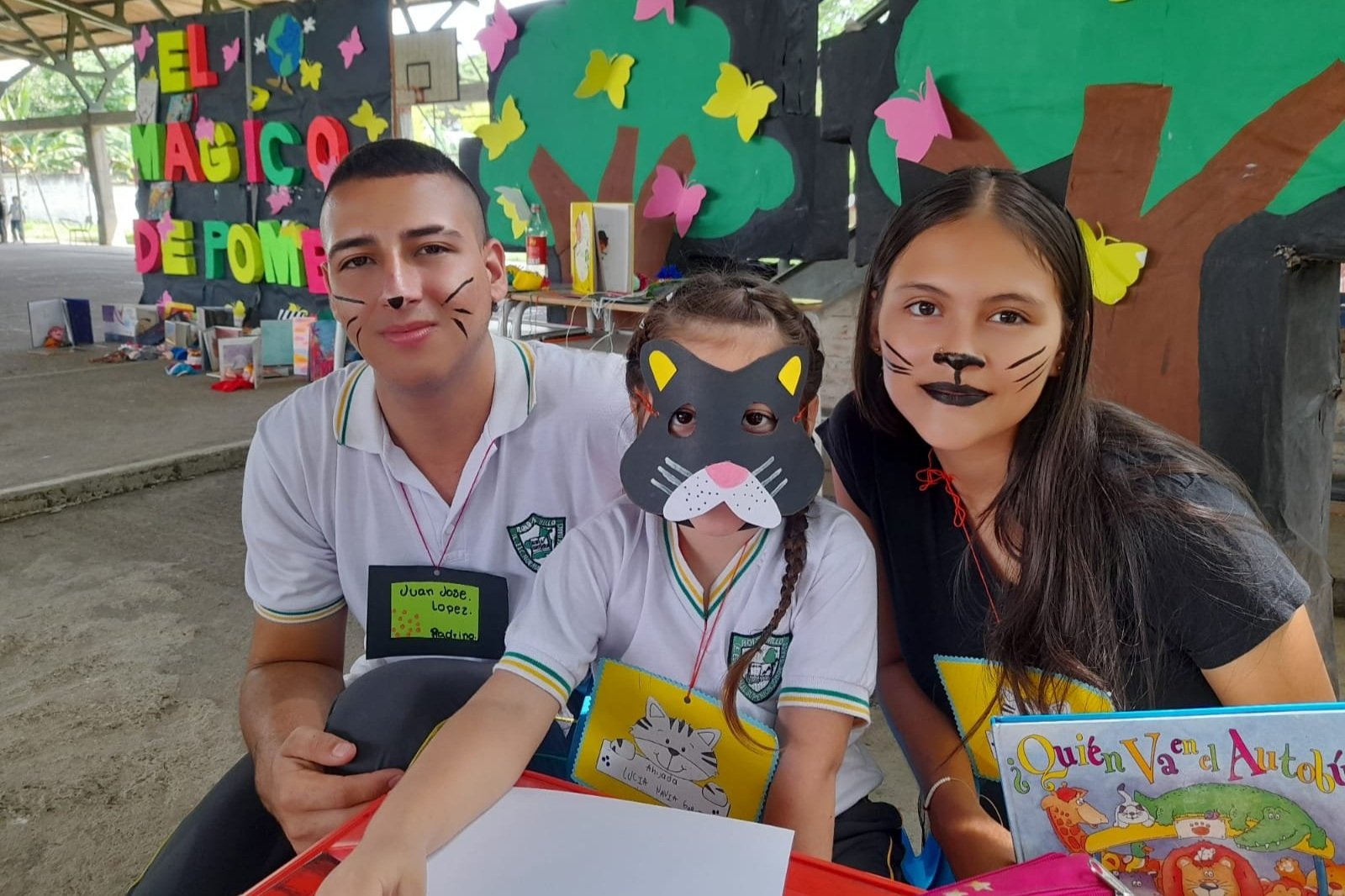
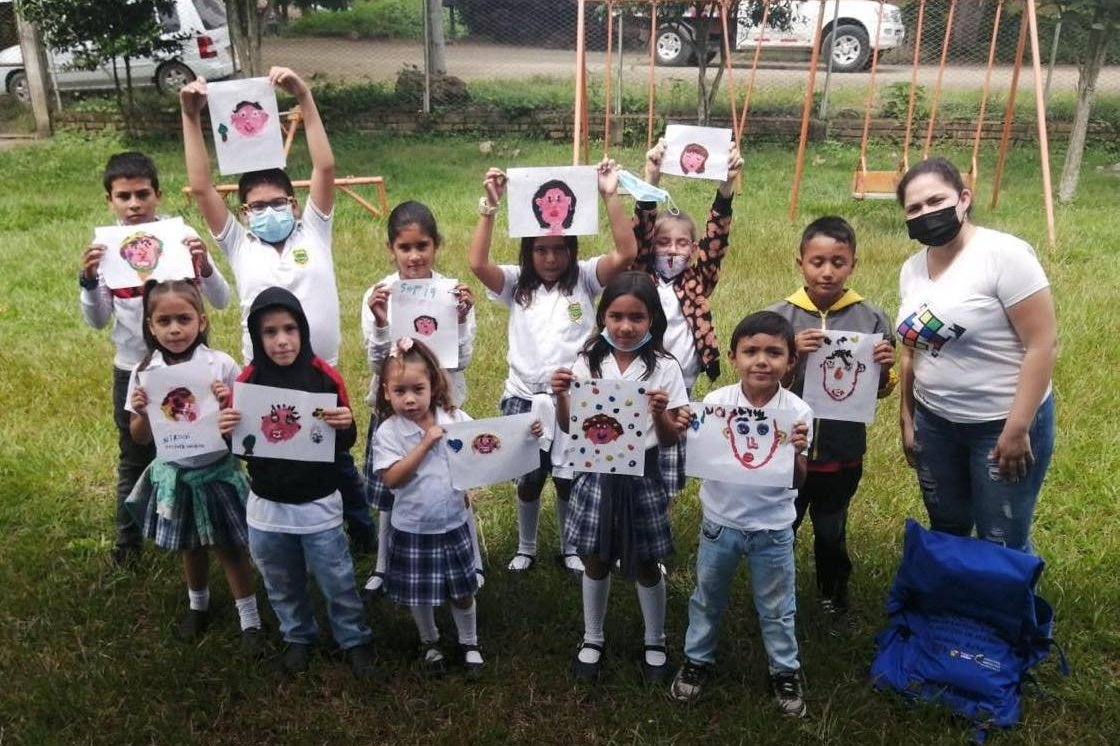
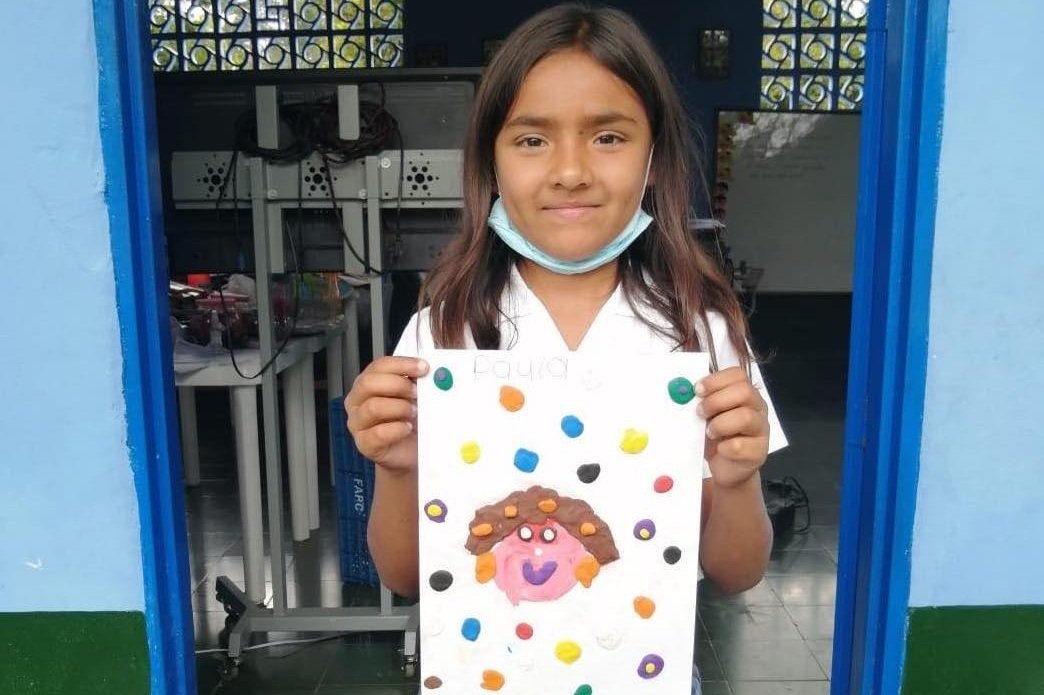
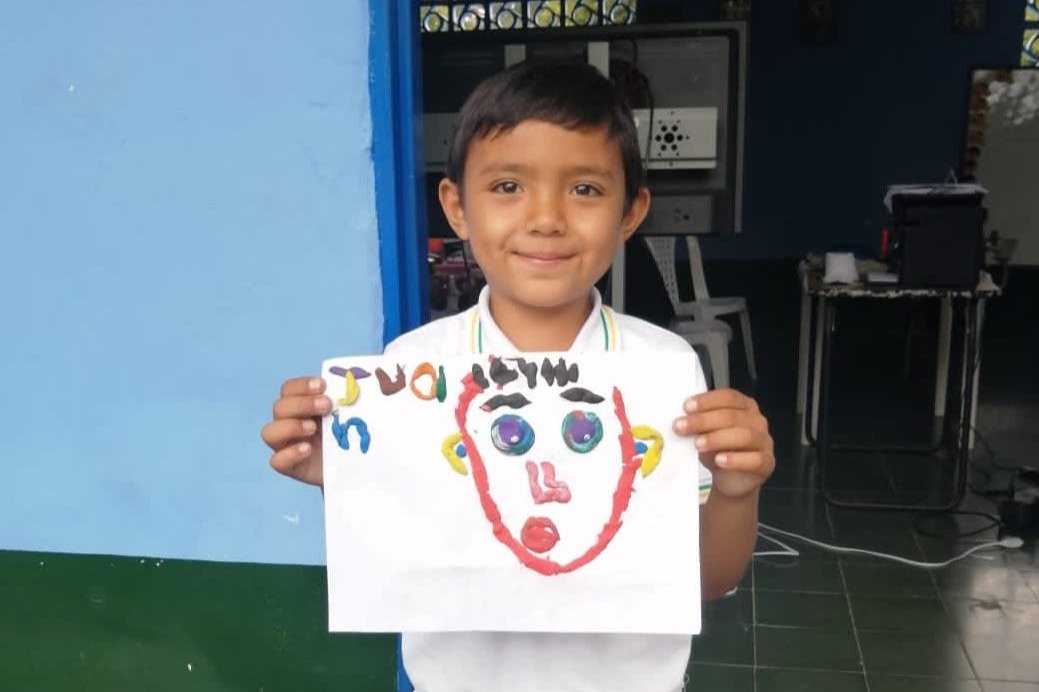
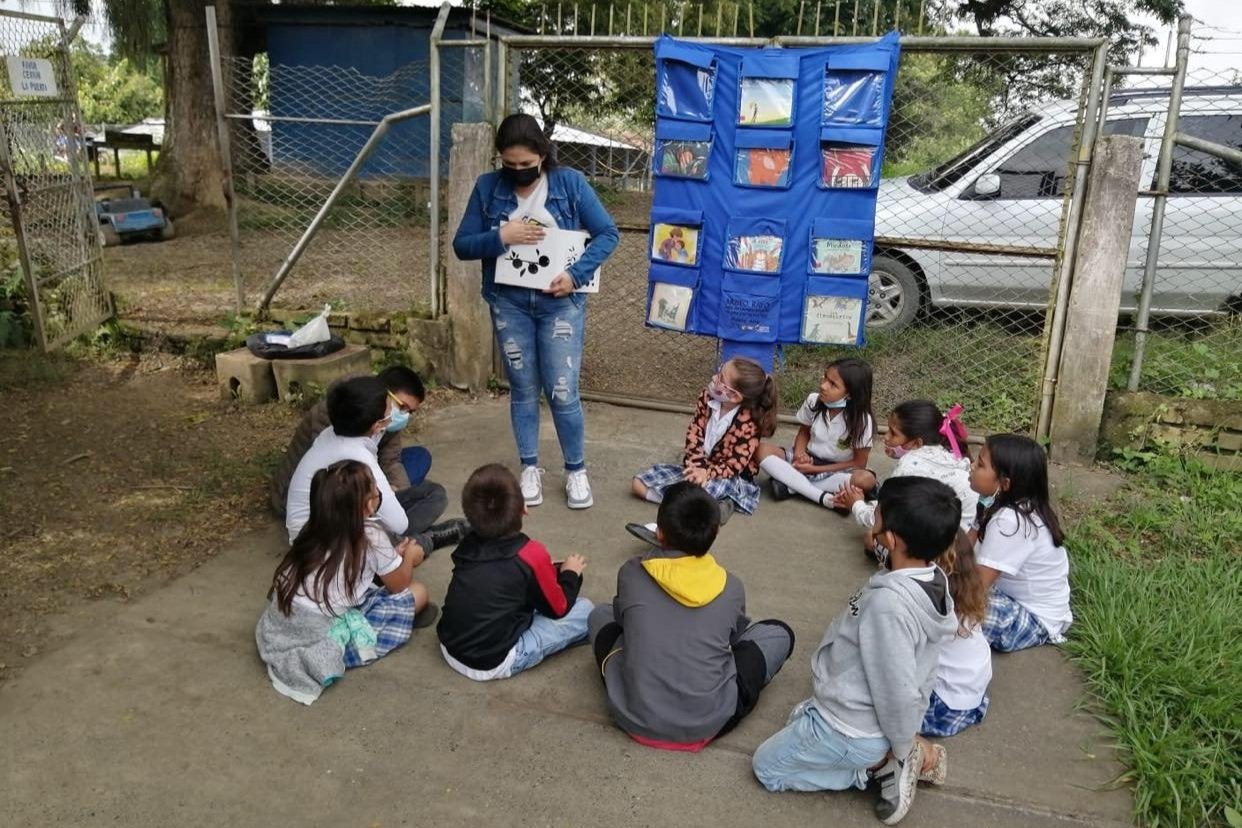
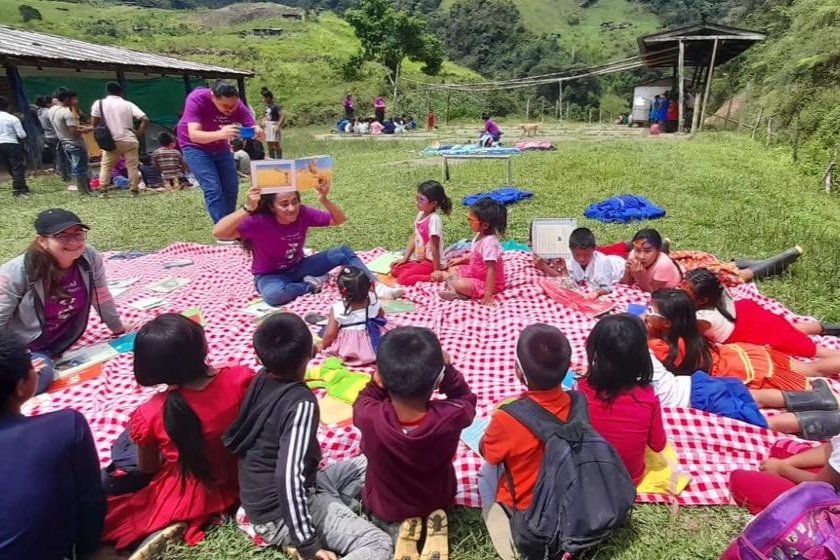
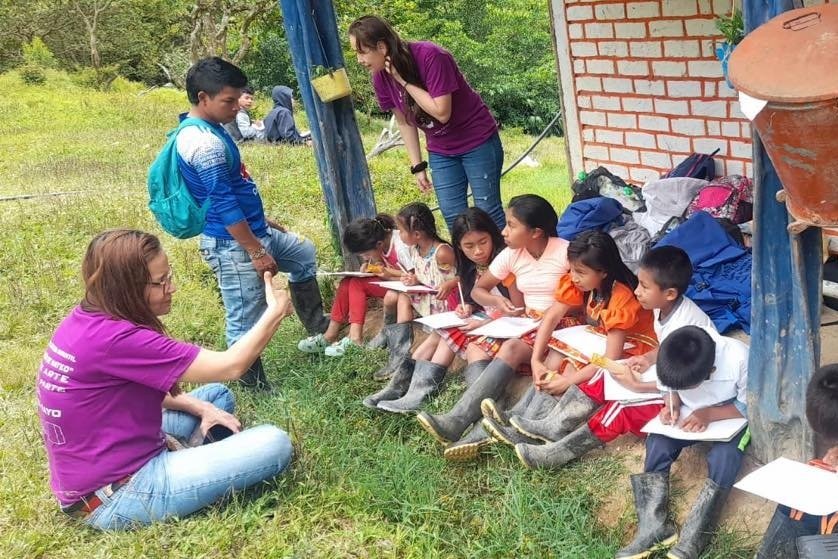
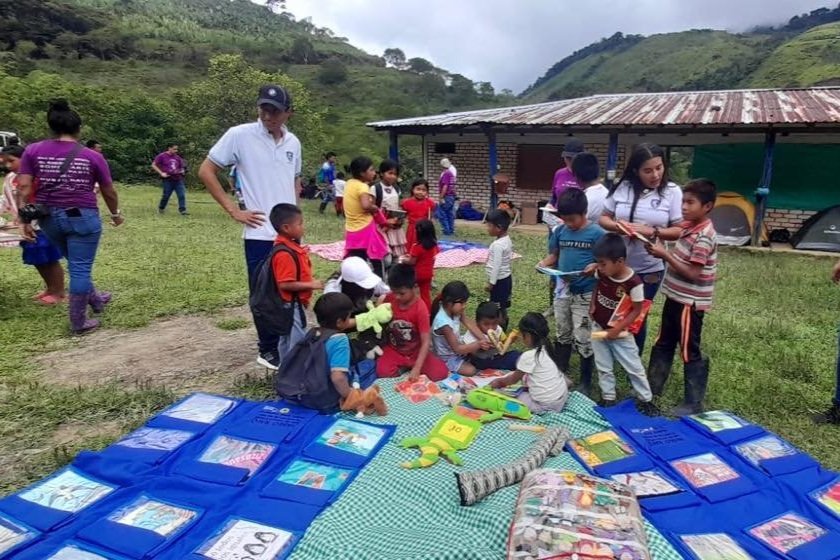
Issue Addressed: Many residents of Roldanillo, Colombia and surrounding communities live in remote, mountainous areas without reliable access to learning resources, including those that Museo Rayo provides. How can we help reach these remote communities?
Our Solution: LitWorld and Museo Rayo have launched 11 mobile libraries to better reach children living in these rural, underserved areas. Each mobile library contains a multitude of literacy resources and activities, all contained within a suitcase for easy transport throughout Roldanillo. We are also exploring the content and implementation of these mobile libraries to learn more about how to best support learning in other remote communities.
Issue Addressed: In the remote communities that Un Mundo serves, teens are often called upon to lead programming for younger children and support their literacy growth. How can we best support these young people and ensure that they have the tools they need to make programs as effective as possible for their communities?
Our Solution: Using existing programming, Un Mundo has created a training program for teens and mentors to help them lead LitClub sessions for children in their communities. Through this, LitWorld and Un Mundo can explore what resources and tools are necessary to make LitClubs as flexible, supportive, and effective as possible.
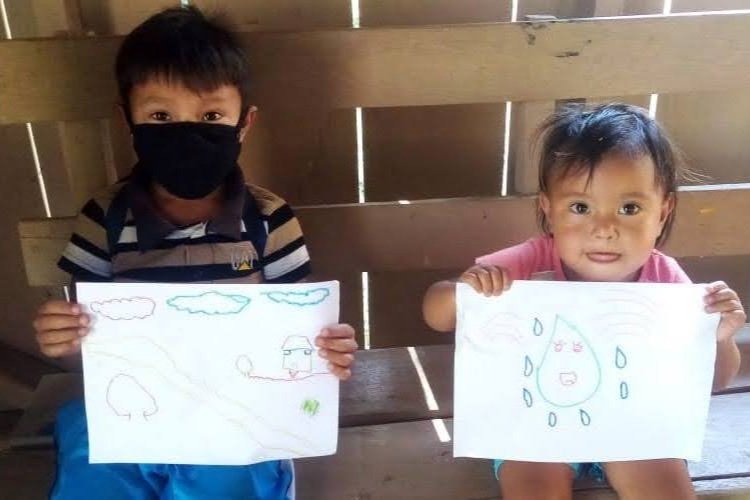
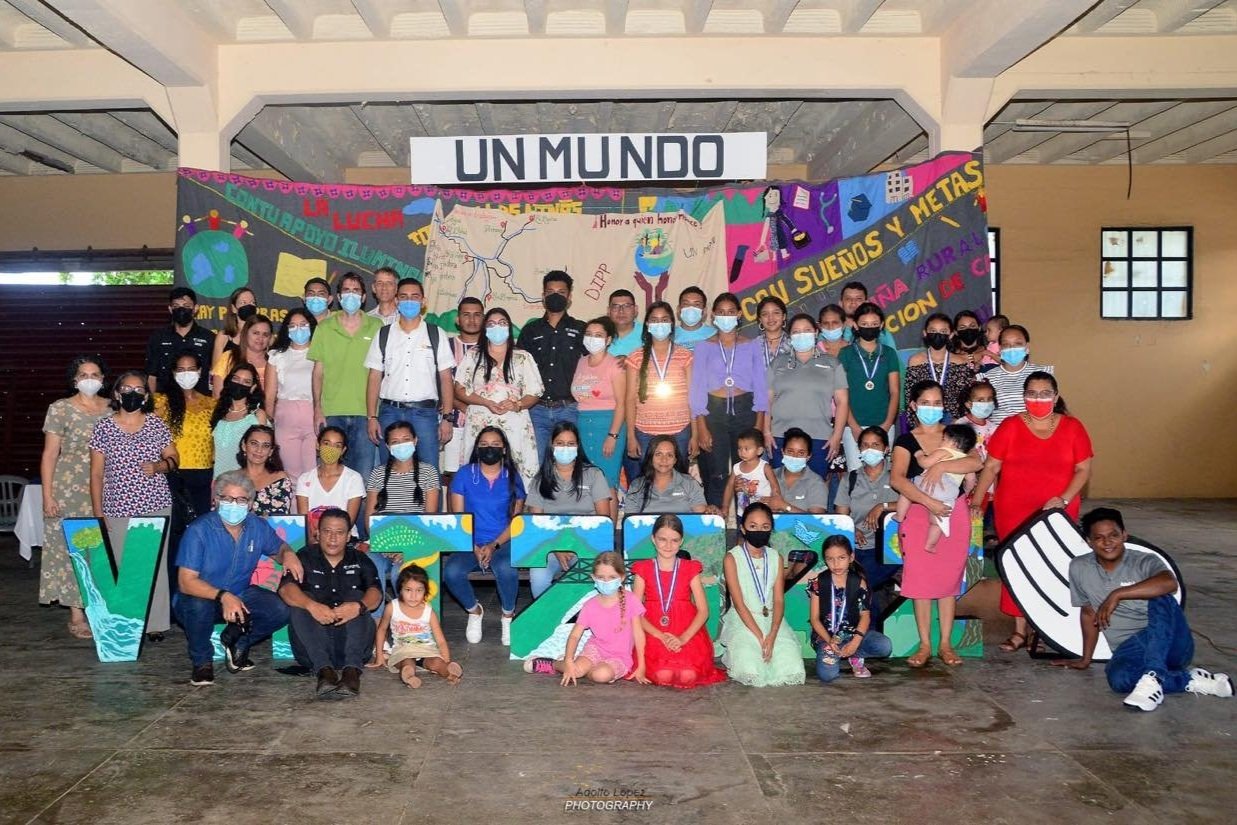
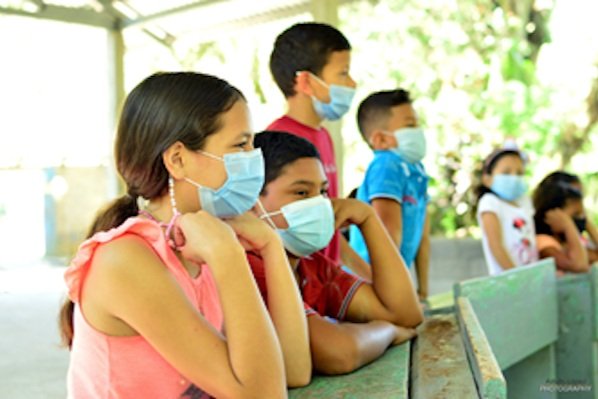
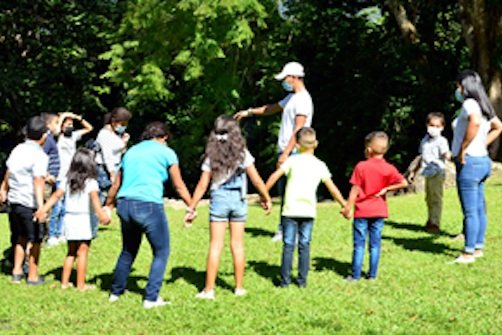
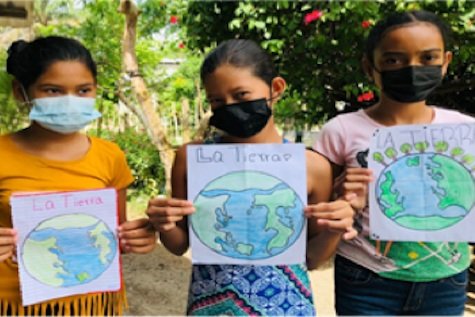
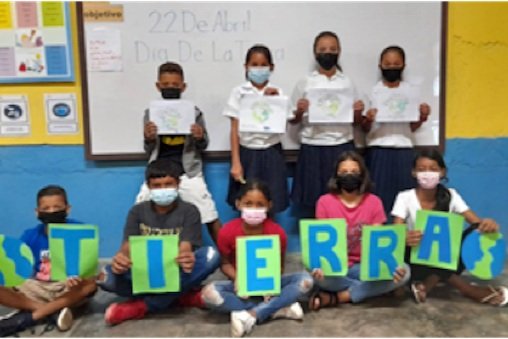
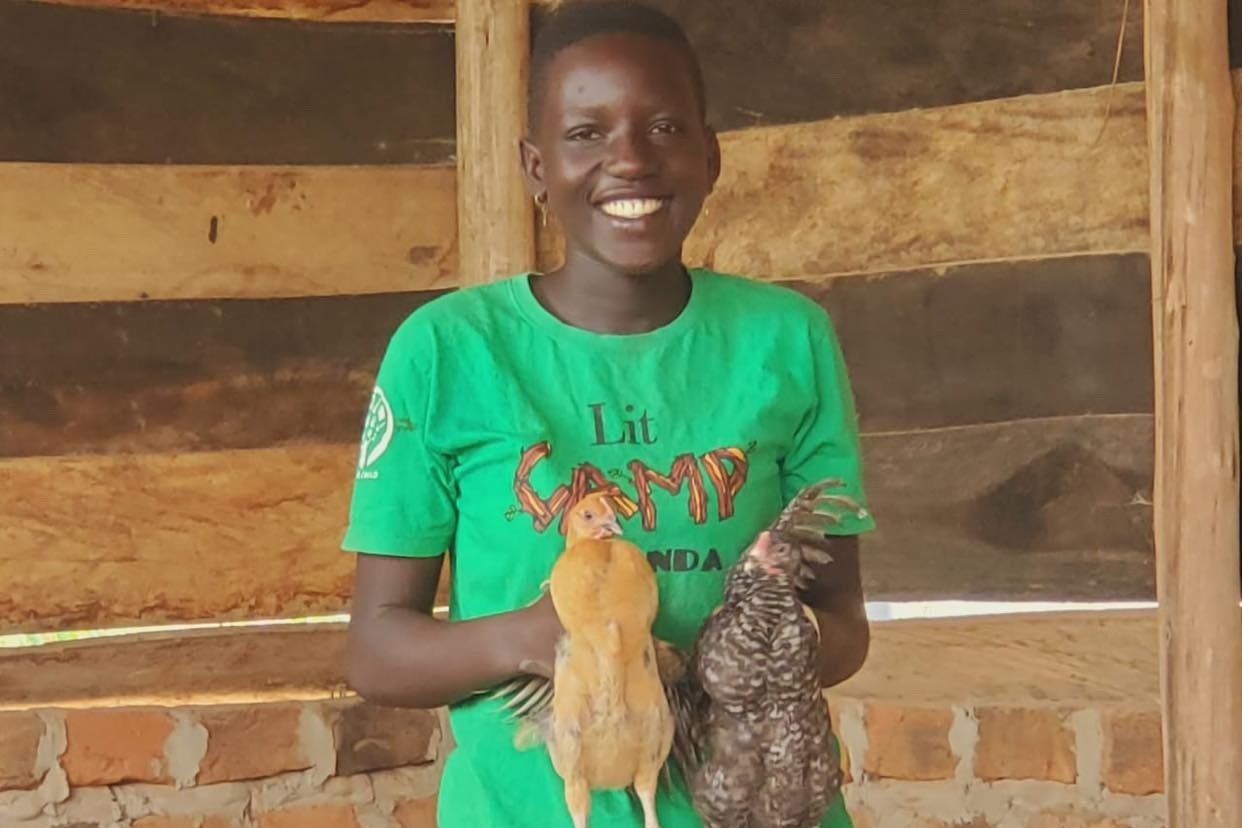
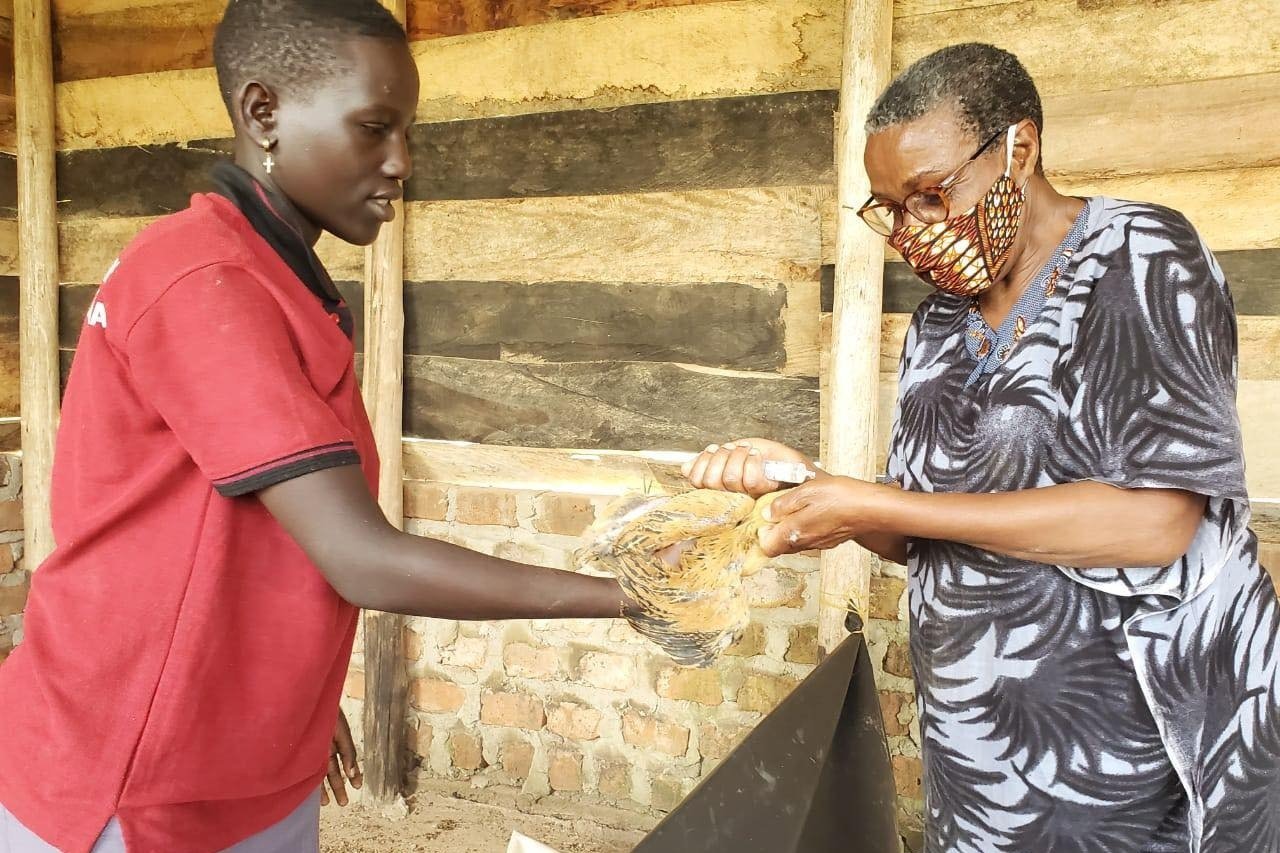
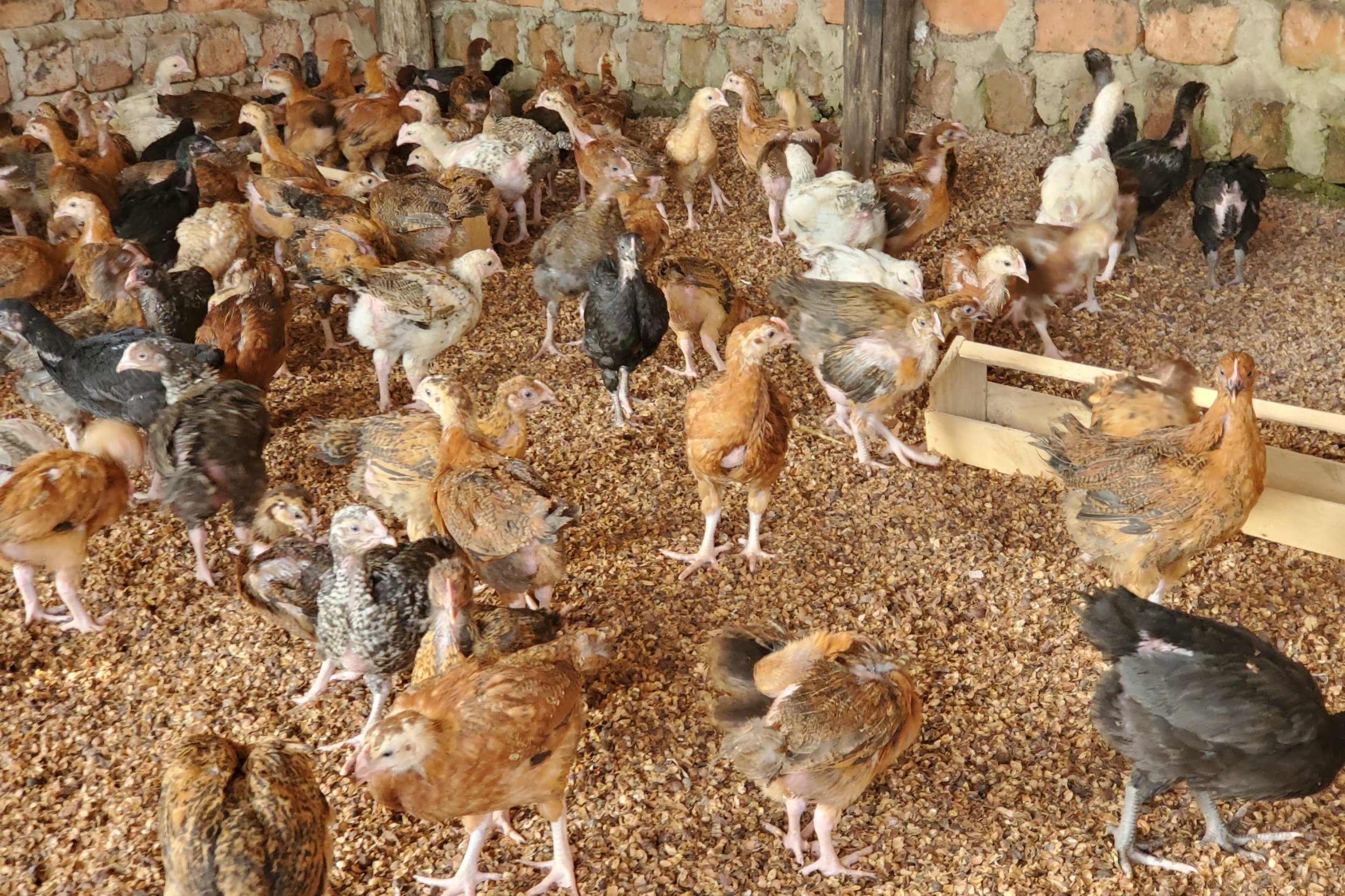
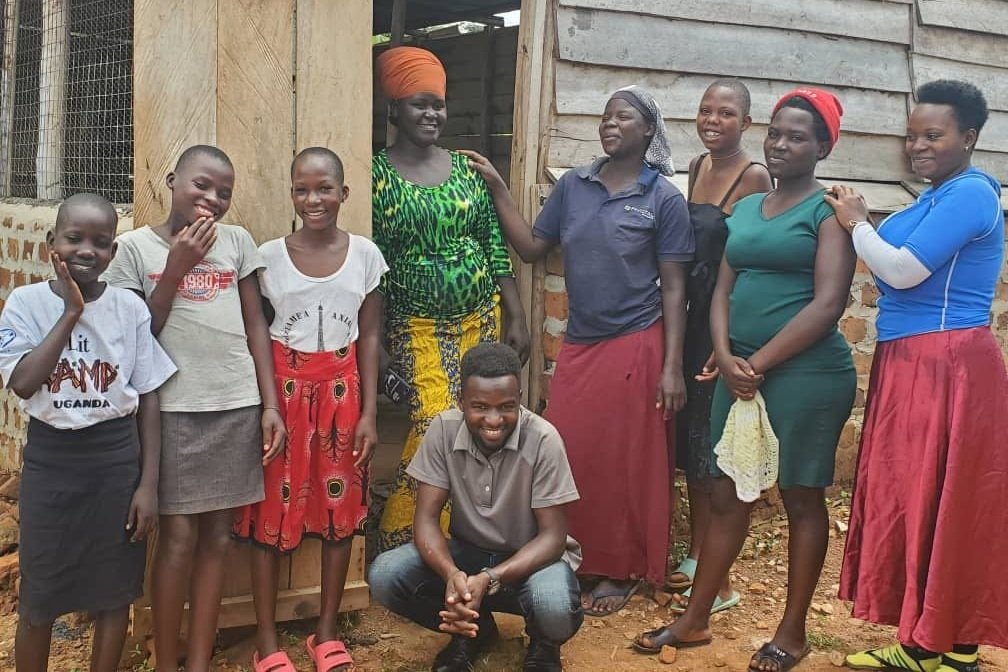
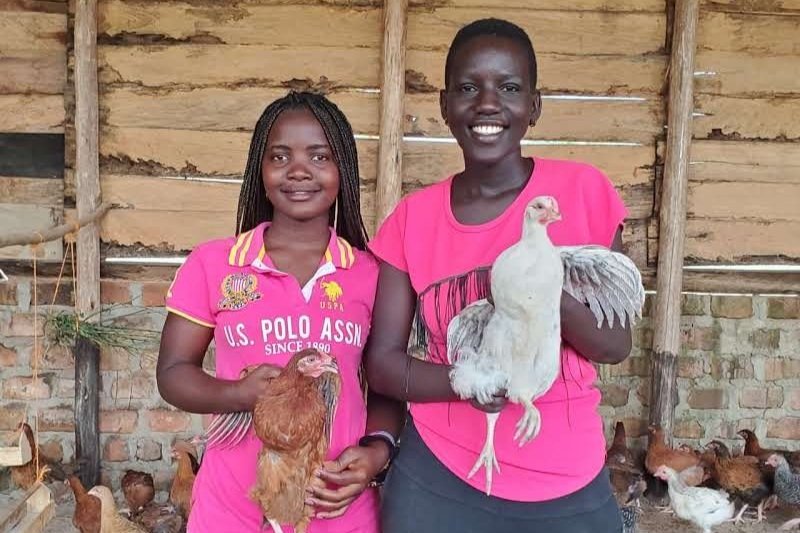
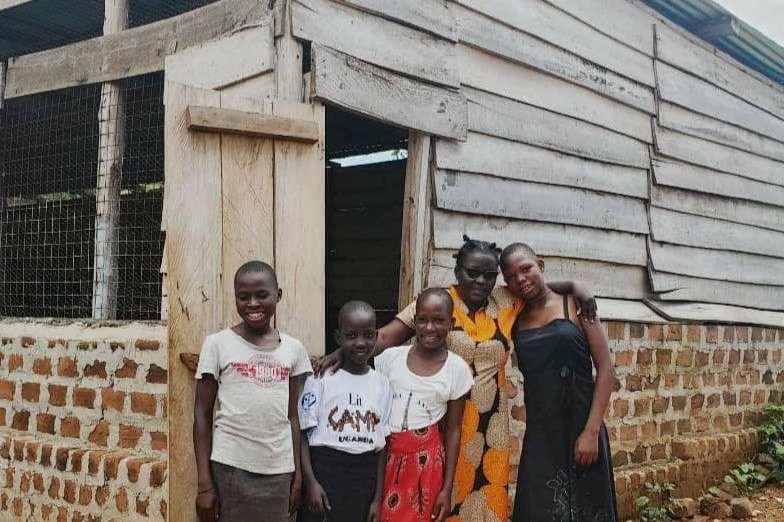
Issue Addressed: As a result of longstanding systemic inequities, many women and girls face substantial obstacles when pursuing financial independence and community involvement. How can we support these mothers and children?
Our Solution: LitWorld and Art of a Child are working together with 100 LitMoms and LitKids to build and run a communal chicken coop. A pivotal part of this project is the Agriculture Business course, which teaches each mother how to start their own agriculture businesses. This invaluable knowledge not only helps them and their children become more self-reliant by teaching them how to grow their own food, but will also help them eventually launch their own businesses. Meanwhile, profits made from the communal chicken coop are going towards children’s school fees and supporting the community in overcoming food insecurity.
Issue Addressed: In Ahmedabad, India, many women lack access to the vital leadership and advocacy building skills that LitClubs provide for children. How can we work together to strengthen these marginalized women?
Our Solution: To support these women, LitWorld and CFD have launched a series of workshops on women’s rights and advocacy for the mothers of the 200 odd children enrolled in their 16 LitClubs. Not only do these workshops provide a safe space for women to share their daily struggles, experiences of domestic violence, and dreams for the future, and more, but they also provide each mother with the opportunity to develop their roles as leaders in their families and communities.
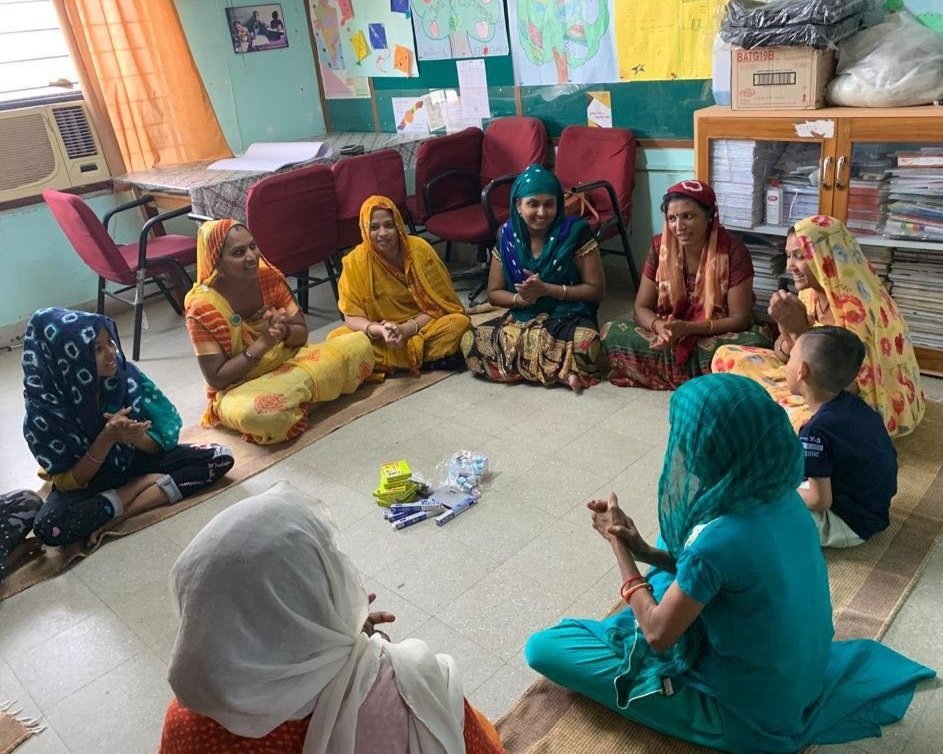
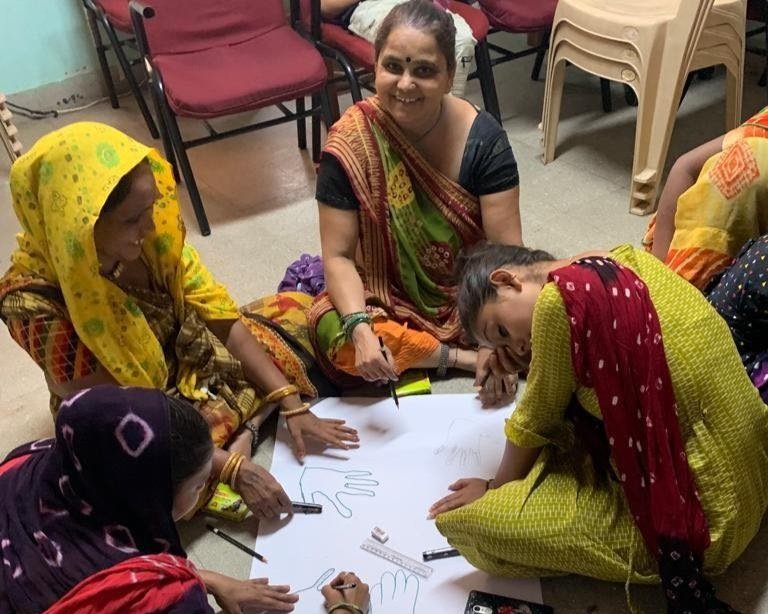
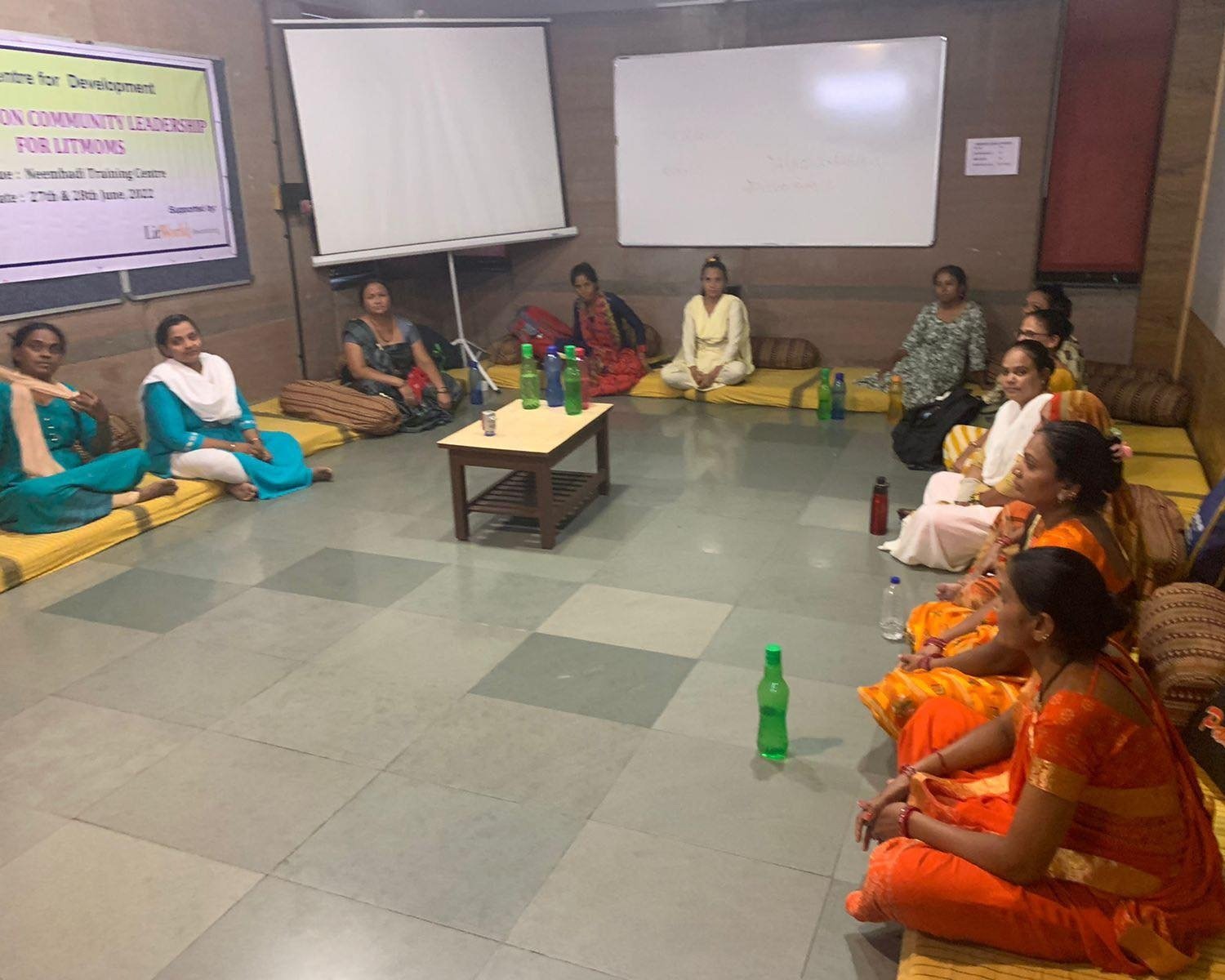
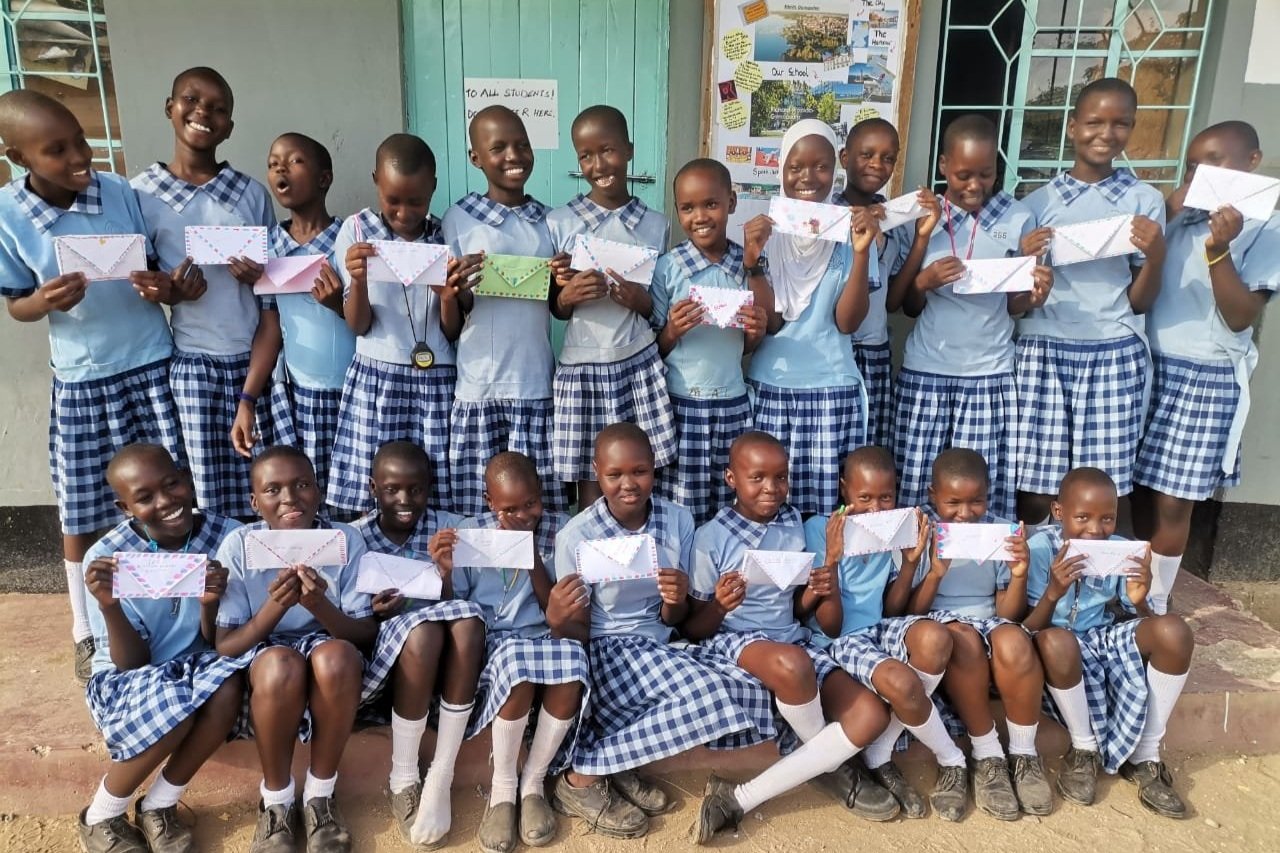
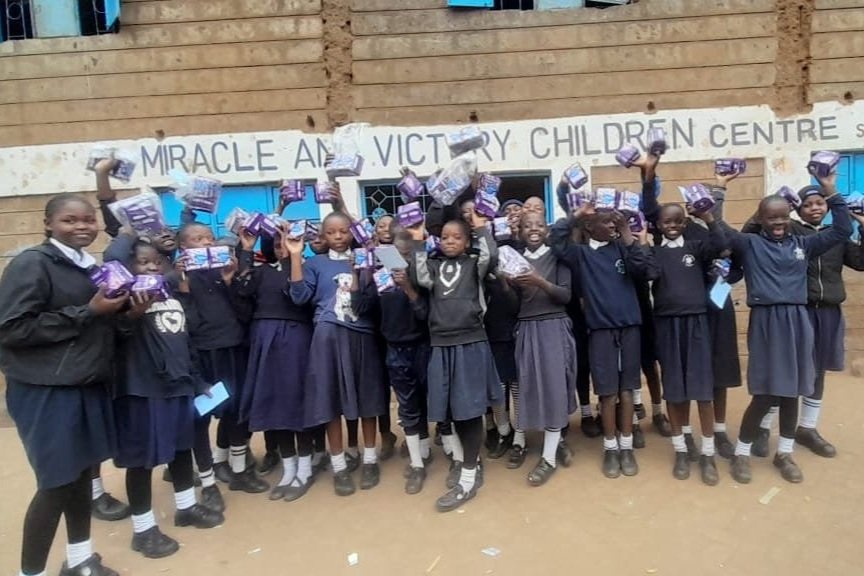
Issue Addressed: The population of teen mothers within Kenya Education Fund’s community has continued to grow, yet neither LitClubs nor LitMom Clubs are fully equipped to handle the unique needs of this vulnerable group. How can our programming better support these teen mothers?
Our Solution: LitWorld and Kenya Education Fund have launched a Teen Mom’s program to combine elements of both LitClub and LitMoms programming, all while providing educational and advocacy opportunities for teen mothers. This project explores the tools needed to empower these young women and help them to take ownership of their own stories and experiences in a positive way. These clubs also incorporate information about of sexual/reproductive health, sexual abuse, STIs, and HIV/AIDS, promoting peer-to-peer conversations as a key intervention for supporting the physical and mental health of members.
Issue Addressed: COVID-19 has continued to greatly impact the schooling and financial stability of families throughout Pakistan, leading to increased rates of school dropout, child marriage, and unsafe child labor. How can we better empower parents and caregivers to support their children’s literacy lives during this difficult period?
Our Solution: Together with LitWorld, Seeds of Hope is using pieces of the LitClub curriculum and LitWorld’s pedagogy to create literacy classes for adults in the community. The project has begun with two classes (one class for women and one class for men), with hopes to expand further in future years.
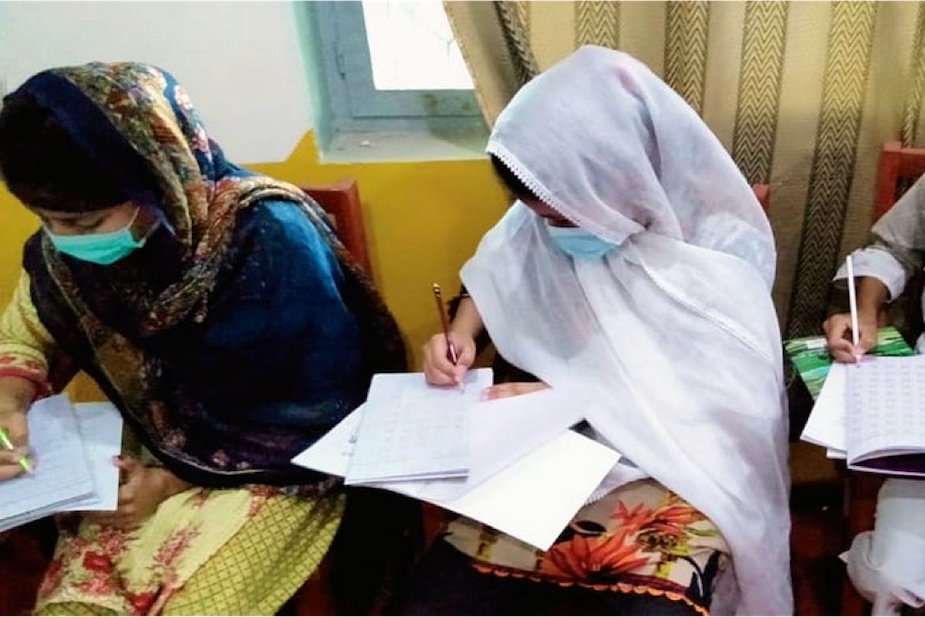
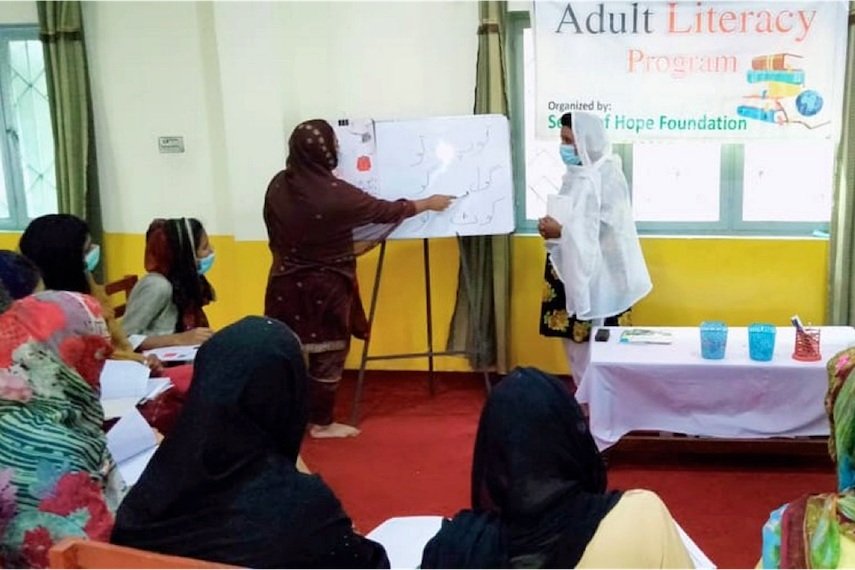
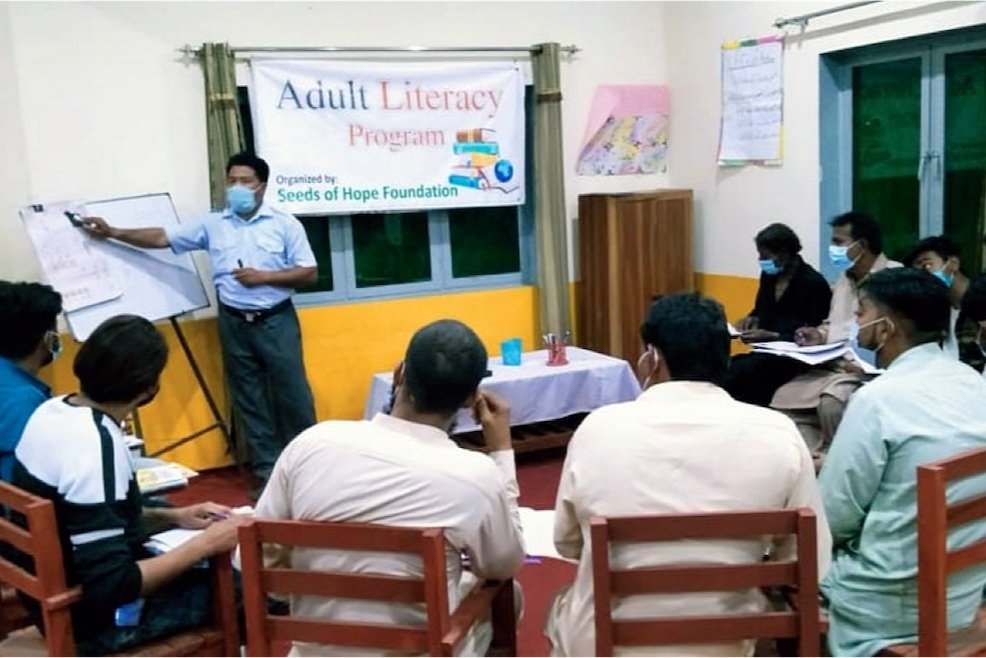
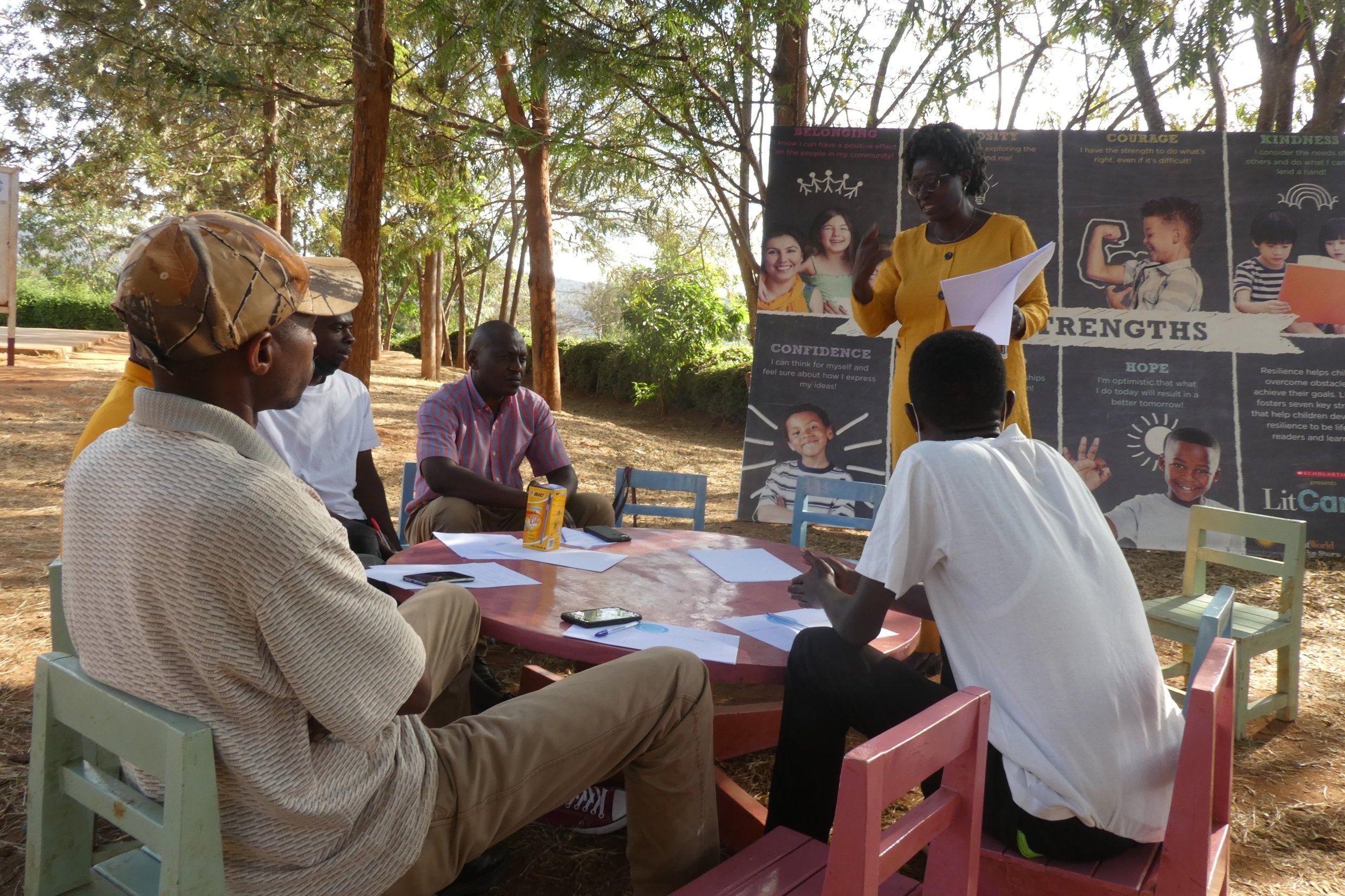
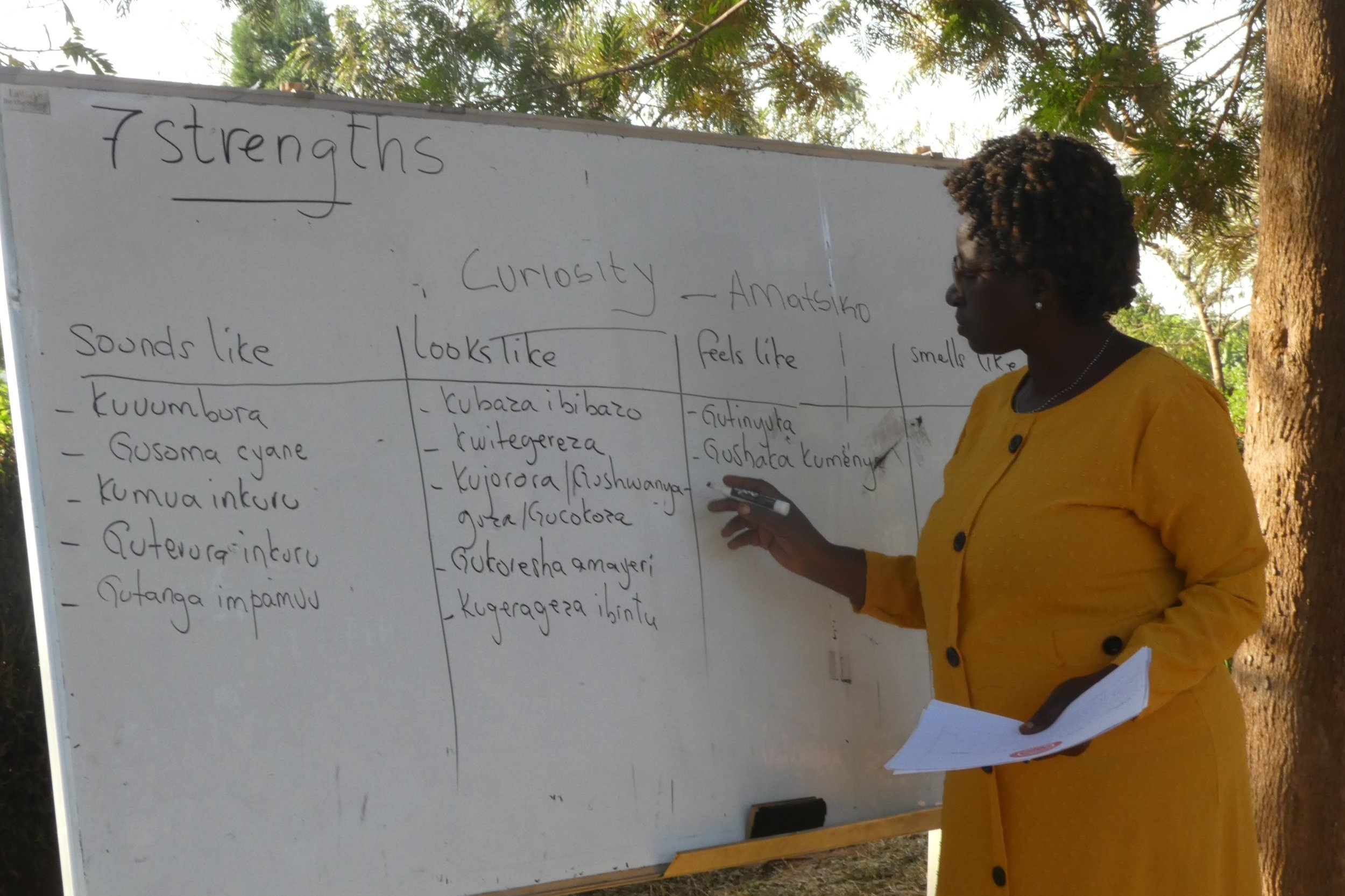
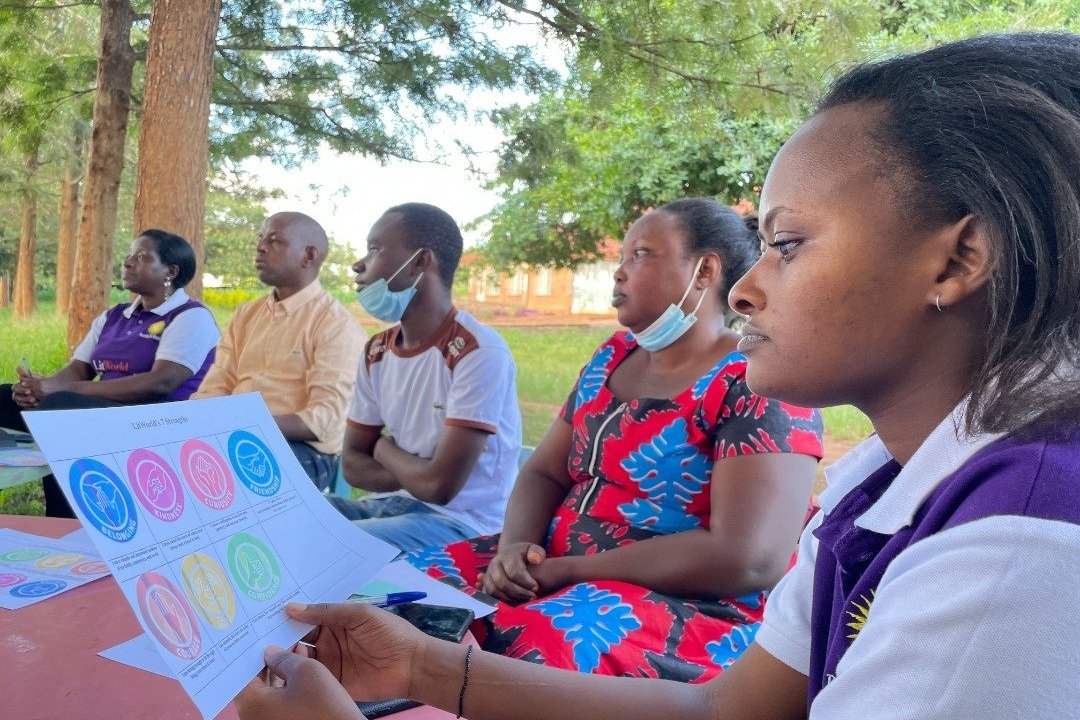
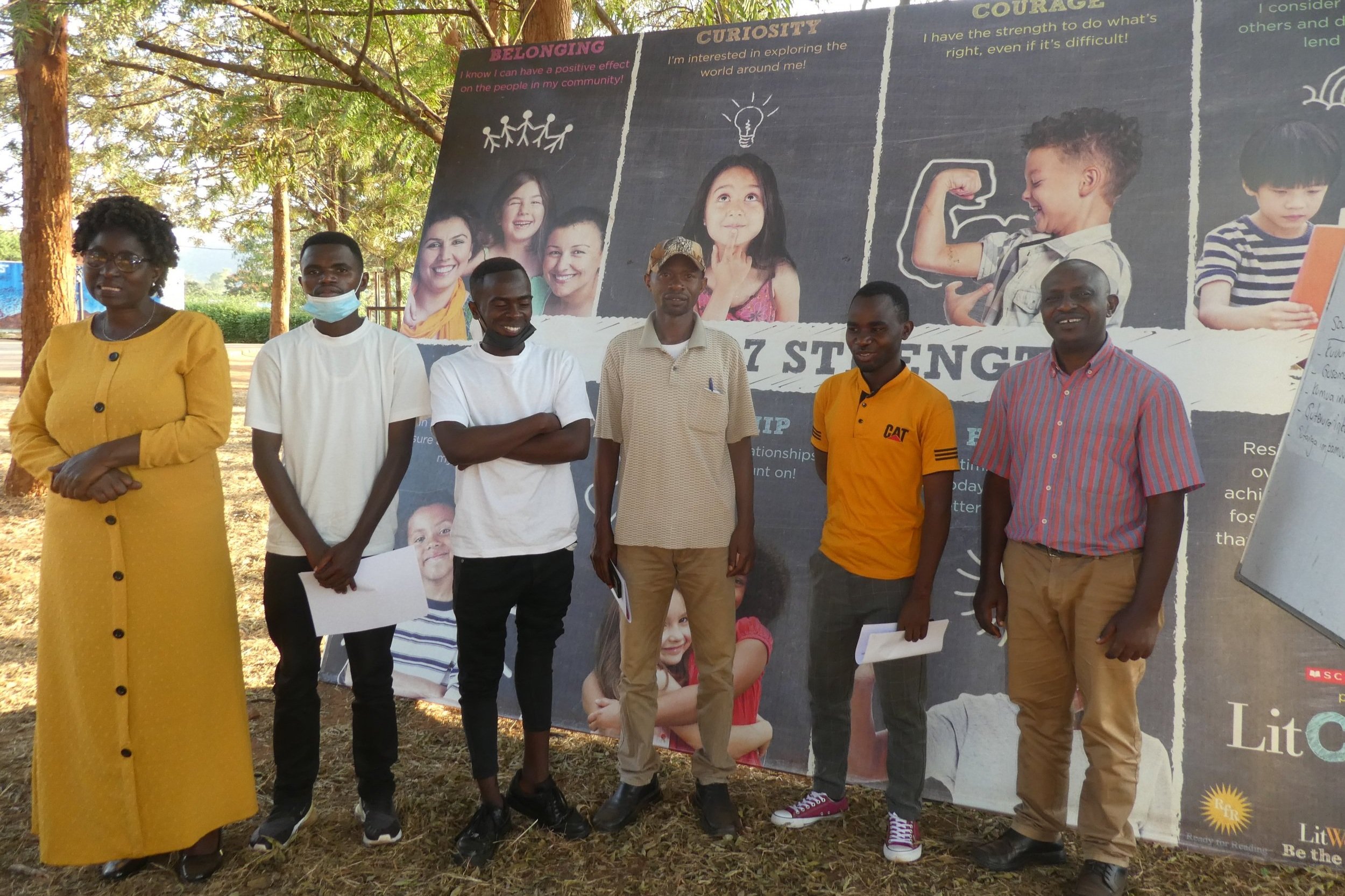
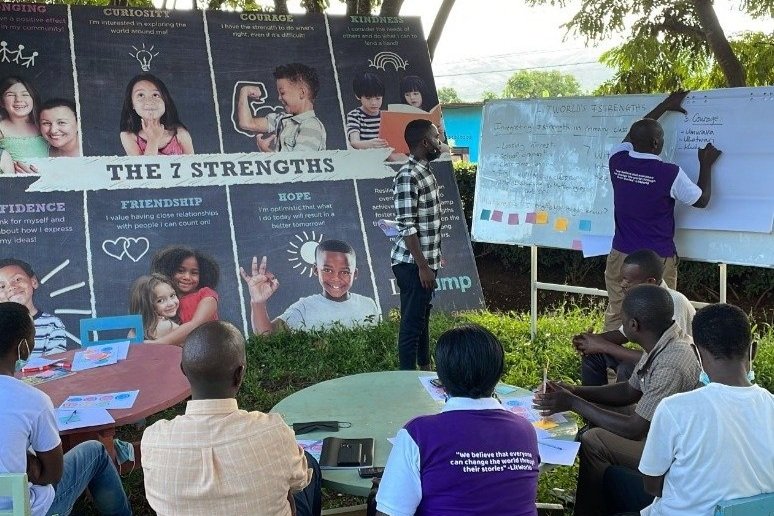
Issue Addressed: While LitClubs have had a tremendous impact on the children at Ready for Reading in Rwanda, the cost of running such clubs has often proved prohibitive when trying to scale or expand programs. How can we share LitWorld’s pedagogy and scale our impact while working within this type of financial reality?
Our Solution: To help more children enjoy and learn from the LitWorld pedagogy, LitWorld and Ready for Reading have designed and codified trainings for teachers, librarians, and community leaders that can be incorporated into their own lessons. Not only does this project allow us to further our reach, but it also allows us to examine what aspects of our resources can be distilled in this format and what frameworks are needed to make them as effective as possible.
Issue Addressed: Due to limited resources and accessibility, many libraries in Livingstone, Zambia are unable to fit the needs of their communities. How can we increase community engagement with these libraries while empowering community leaders and other community stakeholders to implement LitWorld’s 7 Strengths pedagogy?
Our Solution: Together, LitWorld and ReachAll are training librarians in LitWorld’s 7 Strength pedagogy and equipping local libraries with resources to help bridge the gap between the library and the community. Through this, libraries in Livingstone can become hotspots for learning and literacy exploration, as well as centers for LitWorld’s work.
This project also aims to encourage a stronger reading culture within Zambian communities and provide them with greater access to information, improving the country’s economic development.














